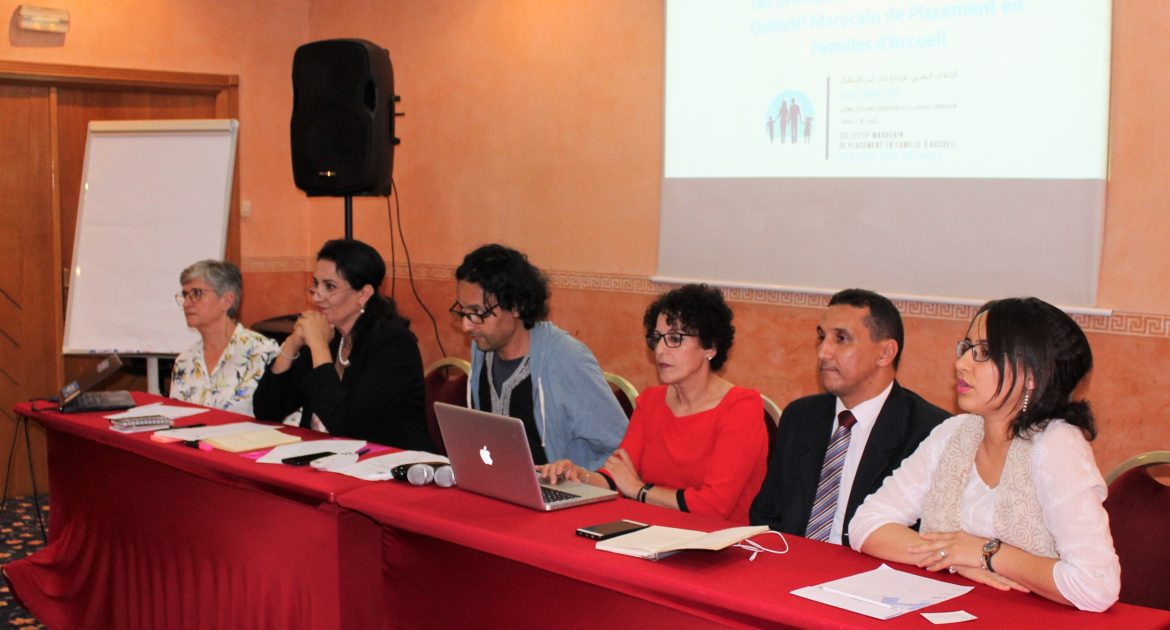
The author, Meryem Mouna, is currently deployed in Morocco as a volunteer legal adviser in the project “Protection of Children, Women and Other Vulnerable Communities (PRODEF)”, implemented by the International Bureau for Children’s Rights and Lawyers Without Borders Canada (LWBC), with the financial support of the Government of Canada through Global Affairs Canada. Meryem is working with Bayti, an IBCR partner in Morocco.
Since the beginning of my mandate as a Legal Advisor, I have assisted the Bayti association in its efforts to support the adoption of a legal status in Morocco to supervise the placement in foster care of abandoned children, deprived of family protection. All children should have the right to grow up in a family, as stated in the Article 6 of the Convention on the Rights of the Child (CRC). The legal void that exists in Morocco regarding foster care status prompted five child protection associations to establish the ‘’Moroccan Collective for Placement in Host Families’’ in 2017. Composed of the associations ANIR and Bayti, the AMANE foundation, the regional office of the Moroccan League for the Protection of Children of Taroudant and SOS Children’s Villages Morocco, this collective aims to defend the adoption of a clear legal framework for foster care issues to the Moroccan State.
It should be noted that in Morocco children are often placed in institutions due to the lack of alternative measures, including mechanisms to regulate foster families. In 2016, 11,373 children were placed in protective institutions for children in difficulties. The number of children deprived of their family environment or in a situation of abandonment is increasing, as evidenced by the multiplication of protection establishments, the number of which has reportedly doubled since 2005. These measures are not always the most appropriate for children. The 2010 report of the National Human Rights Council thus deplores the precarious living conditions in child protection centres, whose standards do not comply with international standards of protection and care.
However, the Moroccan government has consistently reiterated its commitment to child protection at both national and international levels. The drafting of a law governing the foster family system has even been included in the National Programme for the Implementation of the Integrated Public Policy for the Protection of Children, as a strategic objective for the period of 2015-2020. The United Nations Committee on the Rights of the Child also implored: “to complete the process of adopting the draft law on alternative care by giving priority to alternatives to institutional care, in particular parental care, foster care and strengthening programmes to prevent placement in alternative care facilities”. However, while the deadline for submitting the next periodic report to the Committee is 20 July 2020, the placement of children in institutions is still the most common measure in the country.
It should also be recalled that in 2012, a draft legal text on foster care was prepared by judges and child protection associations and submitted to the Ministry of Justice and the Ministry of Family, Solidarity, Equality and Social Development. However, this proposal has remained a dead letter.
However, child protection associations have been proactive in placing children in foster care. Historically, a pilot scheme was set up in 2008 by Bayti, then joined by the founding associations of the Moroccan Collective for Placement in Host Families, which are now working together to set up a legal and procedural framework for this practice. The associations rely on article 471 of the Code of Criminal Procedure, which provides for the possibility of entrusting children to a “trustworthy third person”. The members of the Collective jointly advocate for all children to have the opportunity to develop within a family.
It was therefore on the occasion of the Moroccan National Day for the Rights of the Child on the 25th of May and the International Day of Families on the 15th of May that I was able to participate in the organisation of the official launch of the Collective, which was sold out and generated a great deal of interest among journalists.





